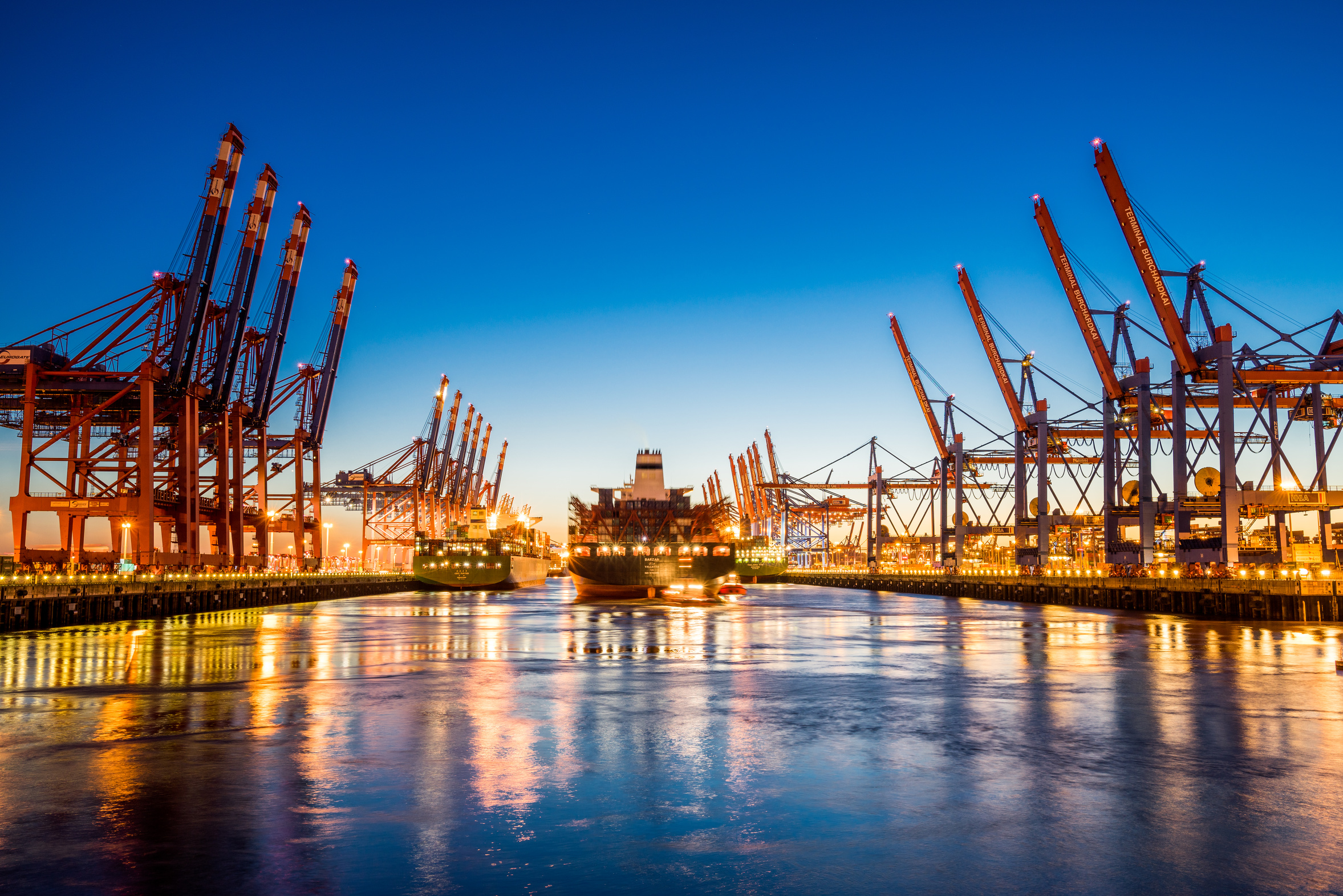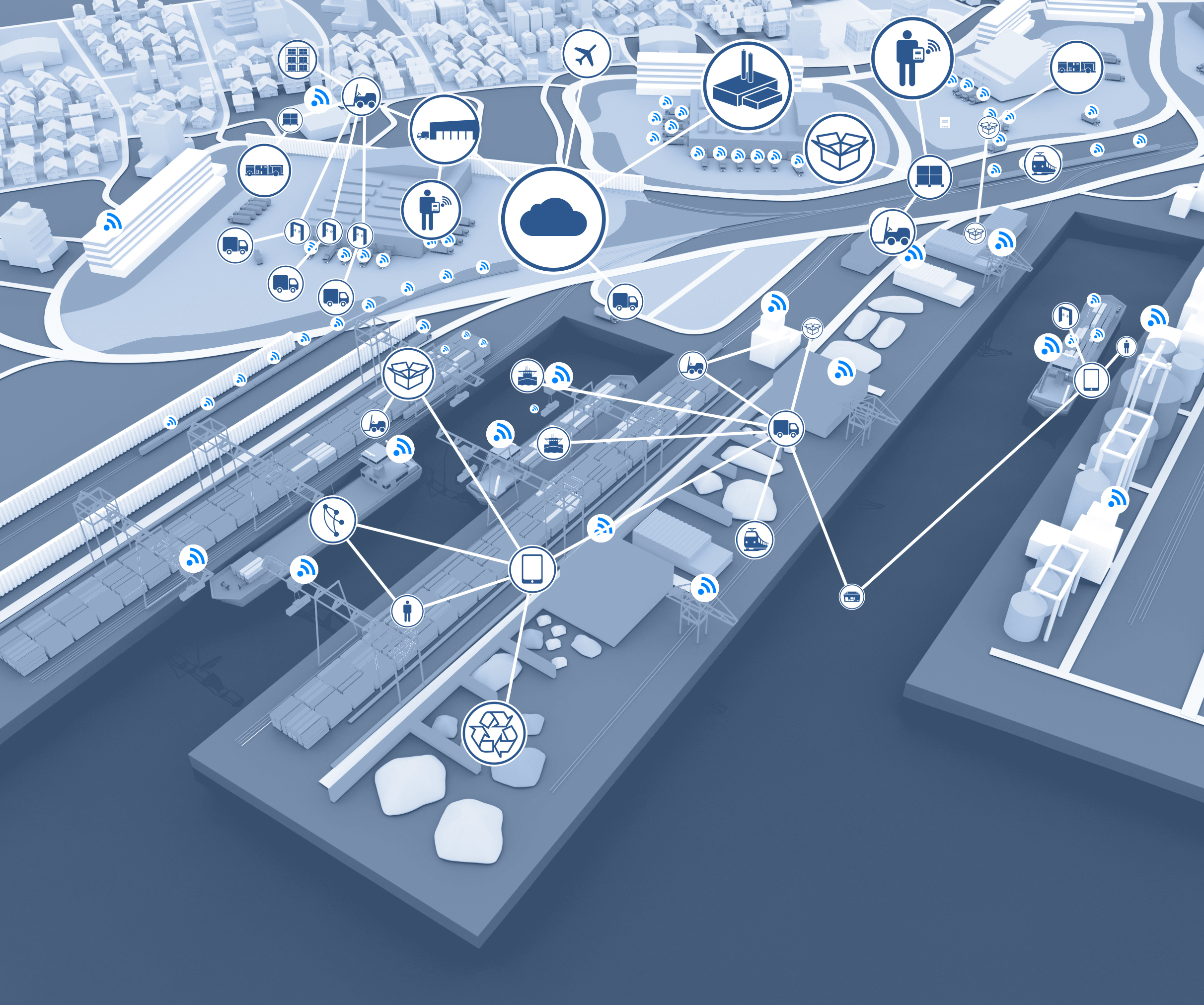Maritime logistics in seaports and inland ports is characterised by a large number of influencing factors and as a consequence by a high degree of complexity. Potentials for the optimisation of processes and infrastructures are therefore difficult to determine or realise. The institutes of Fraunhofer Waterborne support companies in exploiting these potentials on the basis of analysis and optimization. Against the background of ever-increasing networking, the use of new IT applications, the analysis of large data volumes and sensor technologies for recording data on the terminal play important roles.
Maritime logistics
Market studies and strategic port planning
Within the framework of market studies and strategic port planning, forecasts, market overviews and potential studies are carried out to develop sustainable future strategies. This allows future capacity utilisation to be calculated and computed by data. Terminal layout planning can also be supported. Furthermore, Fraunhofer supports system decisionmaking for terminals and ports (e.g. by using a planning table with visualization in 2D and 3D). With regards to climate change, sustainable logistics concepts are being developed in view of growing transport volumes.
Project examples
Investigation of the the economic importance of German sea and inland ports on the basis of their employment effects; BMVI (Fraunhofer IML and CML)
Potentials of ports and waterways for the economy in Westphalia; Transport Association of Transport in Westphalia (Fraunhofer IML)
Study "Autonomous Vehicles' Impact on Port Infrastructure Requirements" (Fraunhofer CML and IML) (download available soon)
Data analyses and cyber security
Digitization leads to increasing volumes of data, which must be evaluated and securely processed. Fraunhofer develops and supports the introduction of new IT concepts (e.g. Industrial Data Space) and the implementation of big-data analyses for maritime logistics. Even if much can be done with algorithms in data analysis, the key is to understand how the data can be processed. This requires process knowledge for the interpretation of data. By discovering similarities and patterns in data sets, for example, an unmanageable database can be categorized and made accessible.
Project examples
I2PANEMA: Intelligent IoT-based Port Artefacts Communication, Administration & Maintenance; ITEA 3 funded by the BMBF (Fraunhofer IML and CML)
Industrial Data Space
Digitalisation of port processes
For the transport and handling of goods, a large number of processes and personnel from different partners are necessary. Therefore, information and processes must be presented in a suitable way. The digitalisation of port processes offers the possibility to optimise processes in the port and to improve human-technology interaction. Solutions that are used within the scope of digitalisation in sea and inland ports include virtual and augmented reality in inspection, maintenance and handling as well as the automation of port operations.
Project examples
Automodal: Automation of trimodal terminals; BMVI as part of IHATEC (Fraunhofer IML)
InnoPortAR: Innovative fields of application for Augmented Reality (AR) in ports and seaports; BMVI as part of IHATEC (Fraunhofer IML and CML)
I2PANEMA: Intelligent IoT-based Port Artefacts Communication, Administration & Maintenance; ITEA 3 funded by the BMBF (Fraunhofer IML and CML)
 Fraunhofer-Allianz Verkehr
Fraunhofer-Allianz Verkehr


